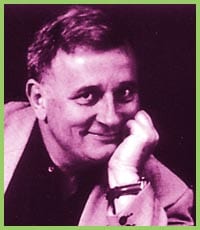Novelist Edmund White is arguably more famous for his non-fiction: a prize-winning biography of Genet which even the French liked, the popular essays on travelling in America States Of Desire, and text for the always-in-print The Joy Of Gay Sex from 1977.
But the half-dozen or so novels starting with Forgetting Elena and proceeding to A Boy’s Own Story have earned him a high place wherever people read English.
His latest is The Married Man. In Paris, an ex-patriate, HIV-positive Yank takes a bisexual, married lover. (White will read from it at the Harbourfront Reading Series on Wed, Jun 14.)
He’s said before that novels offer a “thick sense of duration, which is one of the most marvellous esthetic feelings,” a quality in books that’s harder to find than it once was.
Speaking from Italy, he continued in that vein. “New fiction is very pared down and short stories have become more prominent,” says White. “My two biggest complaints are: One, young writers can’t tell what needs explaining and what doesn’t; and [two], they tend to be undervisualized – you can’t see things. It’s like people write as though the things are going to be made into movies right away.
“That’s a new problem. It comes from living, paradoxically, in an age that’s so totally visual.”
The public image of Edmund White, fostered at signings and readings, is that of a man down to earth and easy going, grounded, centred, relatively calm; he’s pleased to hear it.
“You can tell my boyfriend that, because he was complaining last night that I get to be so hysterical, just sort of screeching away when I’m alarmed about something.
“I was a terribly overwrought teenager whose head was constantly bobbing and I was a mass of nerves. I think I only finally came out in my late 20s, at the time of Stonewall.
“I’ve just written a 50-page essay for [the British periodical] Granta about all the shrinks I ever had; one of those commissions that clicks with you when you really want to do it!
White was in Toronto for our local version of Stonewall, centred on our bath raids in 1981. “I remember being exhilarated by the experience. That was still [when] people could defend their right to promiscuity with a good conscience. But since AIDS people are more confused about what they’re doing and whether they should be doing it at all.
“It’s hard to take a clear-cut stand in favour of promiscuity. I’ve always gotten attacked for that, including by gay people like Larry Kramer and others. I’m all for it personally but I can understand when people aren’t, and how everybody has misgivings about it.”
White, who turns 60 this year, wasn’t published until he was 33, with his seventh novel. His big book came nine years later with A Boy’s Own Story.
Success for him is real, but also finite. “I think I am spoiled, compared to other writers who are more talented than I am and less well known. But since I’ve never had any family money or anything, I always had to earn my own living. And it seems like I’ve just barely squeaked by, that it’s never felt too easy.”
It’s been hard for certain of his friends over the years to cope with White’s success. Giving up drinking cost him one and colleague with whom he often used to stay up all night.
“He was someone who had published six or seven novels and had quite a cult following, but it was never enough for him. Every writer – every literary writer – you could put the words on their tombs: ‘Never enough.'”
On Wed, Jun 14 at 8pm, Edmund White will read from The Married Man followed by an on-stage interview (by Tom Fulton) and a book-signing, in the Brigantine Room (235 Queens Quay W). Tickets are $8; call (416) 973-3000.

 Why you can trust Xtra
Why you can trust Xtra


